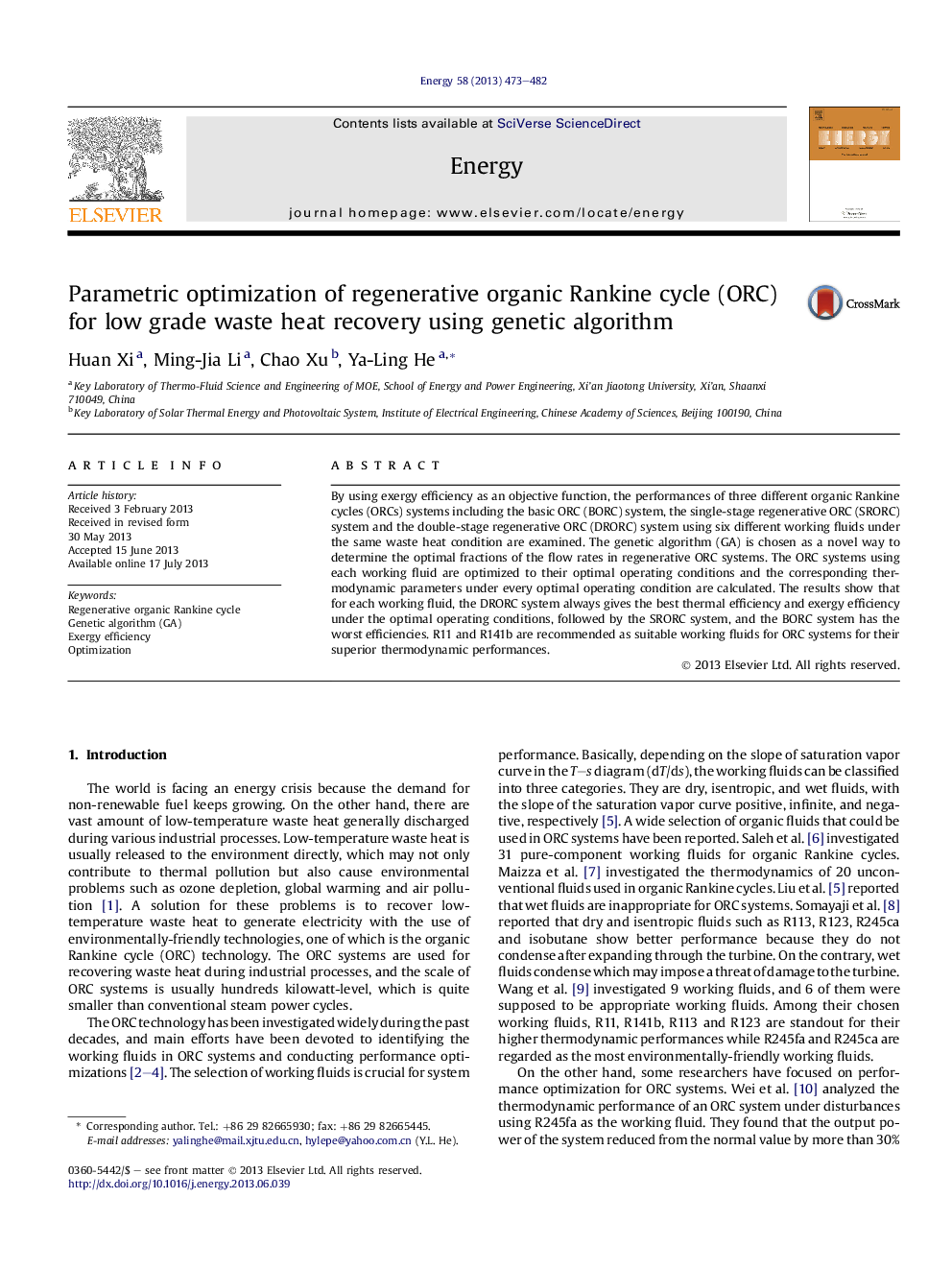| Article ID | Journal | Published Year | Pages | File Type |
|---|---|---|---|---|
| 1732908 | Energy | 2013 | 10 Pages |
•The genetic algorithm (GA) is successfully applied for optimizing ORCs.•Optimized calculations toward fractions of the flow rate are performed using GA.•The R11 and R141b, as the high-efficiency working fluids, are selected for ORCs.•The regenerative ORCs perform better than that without regenerative processes.
By using exergy efficiency as an objective function, the performances of three different organic Rankine cycles (ORCs) systems including the basic ORC (BORC) system, the single-stage regenerative ORC (SRORC) system and the double-stage regenerative ORC (DRORC) system using six different working fluids under the same waste heat condition are examined. The genetic algorithm (GA) is chosen as a novel way to determine the optimal fractions of the flow rates in regenerative ORC systems. The ORC systems using each working fluid are optimized to their optimal operating conditions and the corresponding thermodynamic parameters under every optimal operating condition are calculated. The results show that for each working fluid, the DRORC system always gives the best thermal efficiency and exergy efficiency under the optimal operating conditions, followed by the SRORC system, and the BORC system has the worst efficiencies. R11 and R141b are recommended as suitable working fluids for ORC systems for their superior thermodynamic performances.
